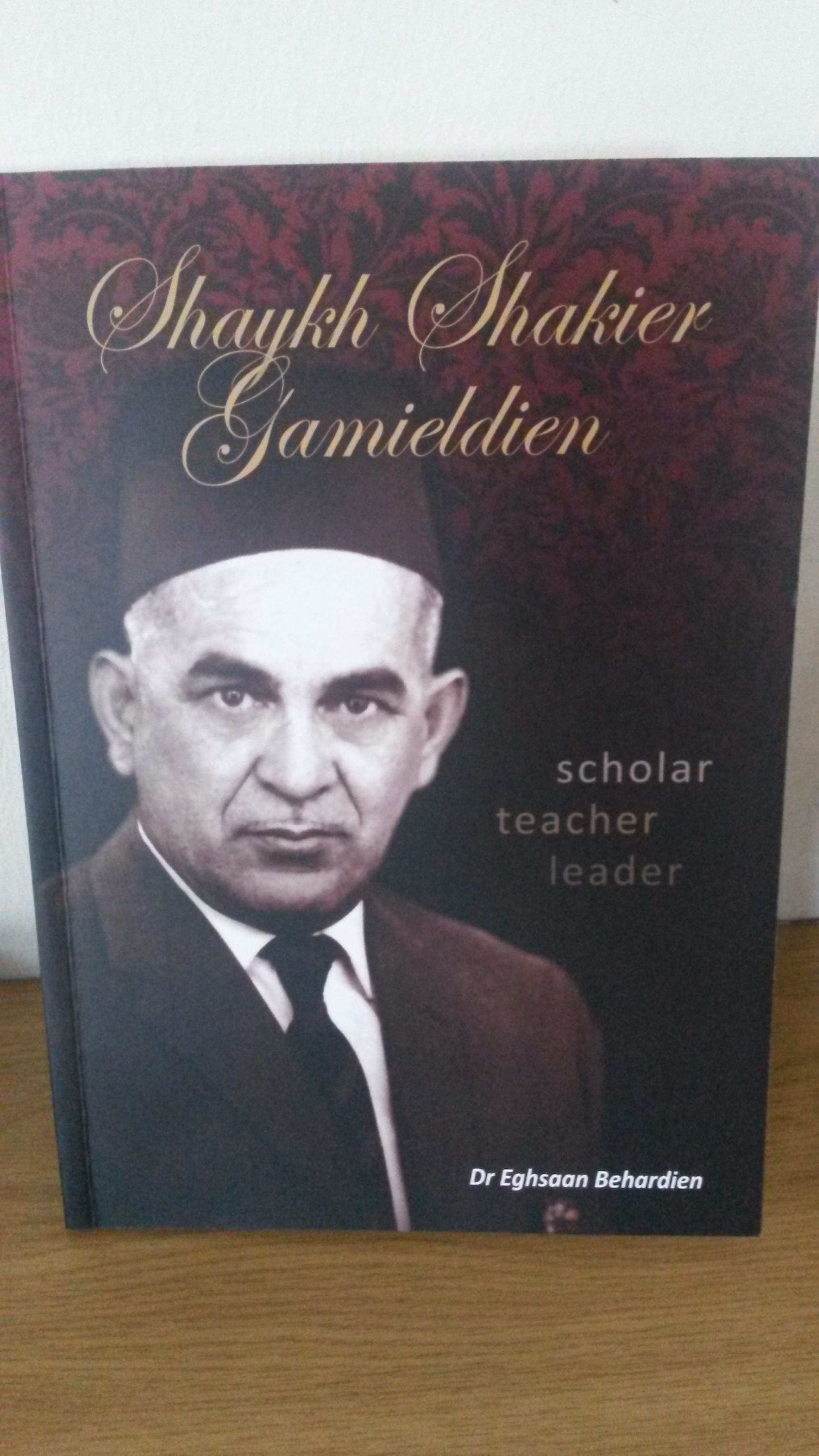“Sheikh Shakier was almost a maverick. He would put forward ideas irrespective whether it made him popular or not. If that is the position he believed in, he would put it forward and stand by it.” These were the words of academic and author Dr. Eghsaan Behardien, in describing the late Sheikh Shakier Gamieldien, the former imam of Aspling Street masjid in District Six.
Behardien has recently authored a book titled ‘Sheikh Shakier Gamieldien: Scholar, Teacher, Leader’, which details the Muslim icon’s life, as well as his impact on the local community. Speaking to VOC’s Drivetime, Dr Behardien said the book, which formed part of his doctorate at the University of the Western Cape, was something in the works since the alim’s passing in 1997. However due to several issues at the time, those plans were put on the back-burner for several years, until consultations in the early 2000’s helped bring it back to the fore.
“It was an arduous task; it took me a few years and I had a heart attack in between. But it was a worthwhile project because it was a labor of love, and I had a very close association with the sheikh through the years,” he said.
Sheikh Gamieldien is well known for being the first Capetonian to study at the famed Al-Azhar University in Egypt, returning to South Africa as a fully qualified scholar. His education in Egypt came at a particularly opportune time according to Behardien, because it coincided with an educational transformation at the university, motivated by Western incursions into Muslim lands at the time. He noted that what was once the cradle of Islamic education was now being confronted by a new and modern form of teaching, of which Gamieldien was a major beneficiary.
“Shakier was fortunate that he was at the right place at the right time. In 1928, against the advice of all the powerful men at the university, Al Azhar appointed Sheikh Mohammad Moustafa al-Maraghi as the rector. He wanted to take the ideas of transformation forward. The same year he was appointed, Sheikh Shakier entered the university,” he said.
As part of this new form of education, issues that were considered taboo amongst the Muslim community were now free and open to be discussed. Behardien suggested this had brought about a more ‘rational and logical’ take on education, of which the Quran was used as a final and not the first source of explanation. According to him, it was this form of education that the late sheikh brought back to the Cape.
Gamieldien is also credited with being one of the founding members of the Muslim Judicial Council (MJC), also taking the reigns as the ulema body’s president for several years after its launch in 1945.
“Obviously this was a major step forward (for the community). The thing is, Shakier was for a long while the president of the MJC, and a lot of people don’t know that,” he said.
“His associatation with the MJC was an extremely emotional and intimate one. Leaving the MJC must have been for him quite a blow.”
‘Sheikh Shakier Gamieldien: Scholar, Teacher, Leader’ contains a more extensive look into the life of the late scholar. For more information on where to purchase the book, contact the VOC studios at 021 442 3500. VOC (Mubeen Banderker)






 WhatsApp us
WhatsApp us 


1 comment
May ALLAH bless his soul.The dear Shaykh died with knowledge which we are all in need of.